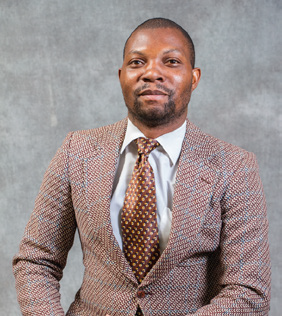The much hyped about COP-26 Summit has failed to deliver favourable outcomes to decelerate increase in temperature by less than 1.5 degrees. Delegations from across the world took time to reiterate commitments to emission reductions in the event which was held from 31 October to 13 November 2021 in Glasgow, Scotland.
Raising ambitions on NDCs is being spoken about by many countries, but the action on the ground is failing to tally with the urgency. Glasgow will go down in the history of climate talks as a missed opportunity. The commitments to deal with coal emissions and fossil fuels were toned down in the final text. This reneging, reversed all the efforts which have been put into the discussion.
If the world is to reduce emissions drastically, action must be taken to reduce emissions especially those coming from fossil fuels. The major sources of greenhouse gas emissions are traditional fossil fuels such as coal. The world’s reliance on coal makes it difficult to strike any meaningful agreement.
Although a deal was stuck in Glasgow, it is weak. The major issues which will halt climate change remain circumnavigated and a fossil based and coal-powered economy remains on the table. It is not a good thing to see some of the top polluters in the world reneging when it comes to ending subsidies on fossil fuels and let alone continue supporting a coal-based development model.
Major coal producers prefer to go towards a “phase down” of coal rather than a “phase out”. These semantics and their implications remain mind-boggling to a plethora of delegations. In some cases, it may mean loss of jobs and close down of whole sectors. In another perspective it may mean meeting the targets of emission reductions. Consensus in such circumstance is as rare as brushing the teeth of a lion.
Due to the different country contexts and the fact that countries depend on different natural resources, it is difficult at times to reach consensus when some countries see the agents of pollution as a source of income. Negotiators faced a tough time in Glasgow in trying to harmonise perception and bring stronger commitments that would lead us towards a carbon neutral future.
For African countries, this means another long wait to redemption as they bear the brunt of climate change due to the higher levels of vulnerability. As delegations circumnavigated decisive and commanding text, in favour of loose text which is based on encouraging action, an agreement in Glasgow was watered down.
With no country willing to take responsibility for historical damage caused in the path to irreversible climate change, pledges for financing continue to be made at a level which is far less that the demand for financial resources. Meagre resources available for financing climate change, make it difficult for putting the plans into practice
Author
-

Tawanda Collins Muzamwese is the Editor in Chief of the Green Business Gazette Magazine. He is is an international consultant in sustainable business development with massive experience in training, consulting and auditing. He has facilitated capacity development in more than 100 enterprises drawn from over 30 countries. He is the founder of the sustainability think-tank called Toxiconsol Consultancy t/a African Sustainability Consultants. He is the Editor in Chief of the Green Business Gazette Magazine. He is a consultant and business coach with over 13 years experience. Tawanda is a Management Systems Consultant working on promoting development and implementation of ISO Standards (ISO 14001:2015, ISO 9001:2015 and ISO 45001:2018) in both developed and developing countries. With his inspirational and pragmatic writing style he has written cutting edge books including: 1) How to grow a Side-hustle into a viable business - Overcome Salary Dependency 2) The Leading Consultant: How become an authority in your professional field 3) Step-by-Step Guide to implementing Safety, Health, Environment and Quality Management Systems 4) Stepping on Higher Perspectives: Greatness Tips Motivational Series 5) Sustainability Guidebook for Boards and CEOs: Leading from the front Tawanda writes about sustainability, motivation, safety, health, environment and quality management. His books are relevant to both developed and developing countries. With practical approaches and case studies, he provides incisive insights into entrepreneurship. His philosophy is based on the premise that every human being has potential to make a significant difference in their lifetime. He writes books on taking personal responsibility for progression in life. He motivates entrepreneurs to implement income generating projects and determine their own financial destiny. He also motivates companies to take up sustainability initiatives. A start-up coach, public speaker, environmentalist, safety, health and quality management expert, Muzamwese bridges the gap between theory and practice through building capacity and sharing practical case studies in his books.
View all posts



